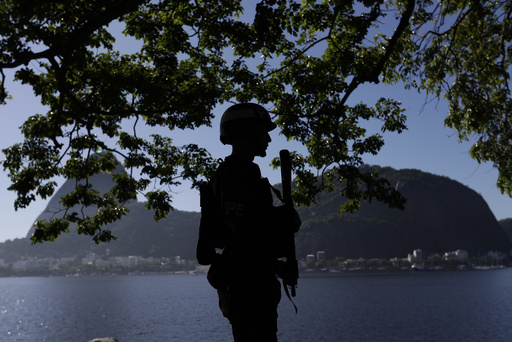
Global Leaders Urge Action on Hunger, Humanitarian Aid, and Reform During G20 Summit
Leaders from the G20 nations have convened to issue a call for a worldwide agreement aimed at tackling hunger, increasing assistance for the conflict-ridden Gaza Strip, and urging an end to conflicts in the Middle East and Ukraine. Their joint declaration, released on Monday, highlighted broad intentions but was vague regarding specific strategies for achieving these objectives.
While the statement received support from most members, there was some discord, particularly from Argentina, which did not fully endorse the document. The declaration also proposed a potential global tax on billionaires and suggested reforms to allow for an expansion of the United Nations Security Council beyond its existing five permanent members.
The three-day summit, which runs until Wednesday, has seen skepticism among experts regarding Brazilian President Luiz Inácio Lula da Silva’s ability to unify the leaders in a meaningful agreement amid uncertainties related to the upcoming transition of the U.S. administration under President-elect Donald Trump, along with increased global tensions due to ongoing wars in the Middle East and eastern Europe.
Despite his reservations about the summit’s prospects, political consultant Thomas Traumann remarked on the relatively positive outcome for Brazil, noting that there was a moment when no declaration at all was expected. He concluded that, although it included some caveats, it ultimately represented a good result for Lula.
In referencing the ongoing crises, the declaration condemned the humanitarian plight in Gaza, emphasizing the urgent need for increased humanitarian aid and enhanced protection for civilians. It stated, “Affirming the Palestinian right to self-determination, we reiterate our unwavering commitment to the vision of the two-State solution where Israel and a Palestinian State live side by side in peace.”
However, the declaration notably excluded mention of Israel’s difficulties or the situation of the approximate 100 hostages still being held by Hamas. This omission stands in stark contrast to U.S. President Joe Biden’s consistent support for Israel’s right to defend itself, a position he reiterated in discussions with fellow leaders before the consensus was reached.
As the situation in Ukraine was also a focal point, Biden commented on the U.S. commitment to Ukraine’s sovereignty and territorial integrity while avoiding direct blame towards Russia for the ongoing conflict. Interestingly, Russian President Vladimir Putin did not attend the summit, delegating the responsibility to Foreign Minister Sergey Lavrov amid ongoing legal challenges against him.
This declaration focuses on significant human suffering in both Ukraine and the Gaza Strip, yet steers clear of assigning blame to specific nations involved in those crises. Political scientist Paulo Velasco noted that the document lacks concrete proposals, observing that while it aligns with Brazil’s desired outcomes, it fundamentally serves as a general statement of intent rather than a practical roadmap.
The proposal for a global tax on billionaires aligns with Lula’s advocacy efforts, potentially impacting the affluent elite worldwide with an estimated 3,000 individuals affected by such a levy, including around 100 from Latin America. Even though this proposal faced opposition from Argentina, it still found its way into the final declaration, as did a call for gender equality initiatives.
Furthermore, the declaration aimed to address global hunger issues, which is a top priority for the Brazilian administration. Coinciding with the summit, Lula announced the formation of a global alliance against hunger and poverty, attracting participation from 82 nations as reported by Brazilian officials. Partner organizations such as the Rockefeller and Gates foundations have also extended their support.
Highlighting the urgency of the hunger crisis, a demonstration took place on Rio’s Copacabana beach featuring 733 empty plates, symbolizing the 733 million people suffering from hunger in the current year, according to U.N. statistics. Oxfam’s Viviana Santiago commended Brazil for leveraging its G20 presidency to advocate for systemic change to combat hunger and inequality on a global scale.
Lastly, world leaders emphasized the need for substantial reform of the U.N. Security Council to make it more representative and accountable to the realities of the 21st century. Lula’s call for these reforms has spanned his political career, yet significant change has remained elusive. Most nations concur that the current composition of the Security Council requires updating to include diverse voices from underrepresented regions.
The declaration urged a revamped Security Council that could better represent regions like Africa, Asia-Pacific, and Latin America. However, despite this expressed desire, the document provided no definitive answers regarding how such reforms could be implemented.
